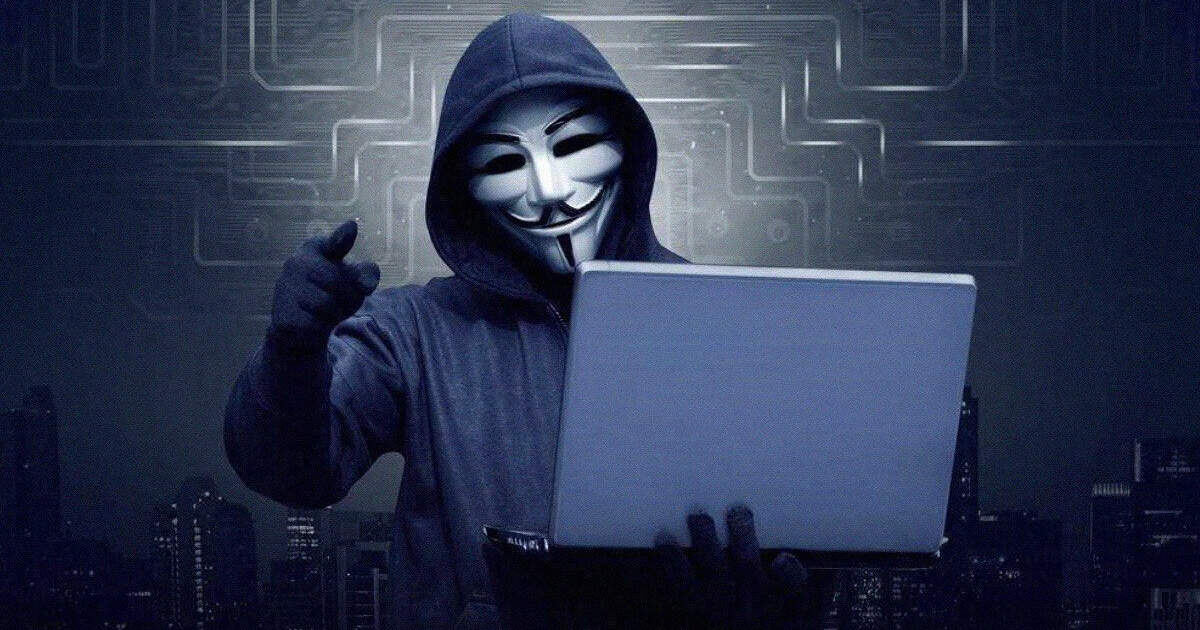Hackers have made a significant impact on technology and security. Some are known for their skills, while others are infamous for their illegal activities. This list highlights ten of the best and most famous hackers in the world.
These hackers have different backgrounds and motivations. Some use their skills for good, helping companies strengthen their security. Others, however, have crossed legal boundaries, gaining notoriety for their exploits.
Understanding their stories gives us insight into the hacking world. From ethical hackers to notorious criminals, each has shaped the digital landscape in unique ways. Let’s explore the lives and achievements of these notable hackers.
You can also read about with Money6x Earning: A Beginner’s Guide
What is a hacker?
A hacker is someone who uses technical skills to access computer systems and networks. This can involve breaking into systems to find vulnerabilities or exploring how software works. Not all hackers have malicious intent; many are ethical hackers who aim to improve security.
Hackers are often categorized into different types. White hat hackers work for organizations to protect systems, while black hat hackers exploit vulnerabilities for personal gain. There are also gray hat hackers who fall somewhere in between, sometimes breaking rules without harmful intent.
The term “hacker” has evolved over time. While it originally referred to someone who enjoys exploring and understanding technology, it now includes both good and bad actors. Understanding the different types of hackers helps clarify their roles in the tech world.
What is ethical hacking?
Ethical hacking involves legally breaking into computer systems to identify vulnerabilities. Ethical hackers are often hired by organizations to test their security measures. Their goal is to find weaknesses before malicious hackers can exploit them.
These hackers use the same tools and techniques as black hat hackers but with permission. They perform penetration testing, vulnerability assessments, and security audits. By doing so, they help companies improve their defenses against cyber threats.
Ethical hacking is essential in today’s digital landscape. As cyberattacks become more common, organizations need to stay proactive. Hiring ethical hackers helps ensure that systems are secure and protected from potential breaches.
Who is the best hacker in the world?

Determining the best hacker in the world is subjective and often debated. Many names come to mind, but one prominent figure is Kevin Mitnick. Once considered one of the most wanted hackers in the U.S., he has since turned his skills into a career as a security consultant.
Another notable hacker is Adrian Lamo, known for his high-profile hacks, including that of The New York Times. He gained notoriety for exposing security flaws but later became an informant. His actions sparked discussions about ethics in hacking and the responsibilities of hackers.
Finally, there’s Linus Torvalds, the creator of Linux. While not a hacker in the traditional sense, his contributions to open-source software have profoundly influenced the tech world. Each of these individuals has made significant impacts, shaping the perception of hacking in different ways.
Marc Rogers
Marc Rogers is a well-known figure in the cybersecurity community. He is recognized for his expertise in ethical hacking and security research. As the Chief Security Officer at Okta, he focuses on identity management and online security solutions.
Rogers gained fame for his work in the hacking world, including impressive demonstrations at major security conferences. He often highlights vulnerabilities in systems, helping organizations improve their defenses. His hands-on approach has made him a respected voice in the field.
In addition to his work in cybersecurity, Rogers is also an advocate for responsible disclosure. He believes in sharing information about security flaws with organizations before making them public. His commitment to improving security practices has made a lasting impact on the industry.
Dr Charlie Miller
Dr. Charlie Miller is a prominent security researcher known for his work in the field of ethical hacking. He gained fame for his expertise in finding vulnerabilities in software and devices. With a background in computer science, he has a strong understanding of cybersecurity principles.
Miller is best known for his work on hacking vehicles. He demonstrated how to take control of a car’s systems remotely, raising awareness about automotive security risks. His research has influenced the automotive industry, leading to improved security measures in modern vehicles.
In addition to his research, Dr. Miller has worked for major companies like Uber and Twitter. He has contributed to numerous security projects and continues to advocate for safer technology. His work highlights the importance of security in our increasingly connected world.
HD Moore

HD Moore is a well-known figure in the cybersecurity community, recognized for his contributions to ethical hacking and security research. He is best known as the creator of the Metasploit Framework, a popular tool used for penetration testing.
Moore has a strong background in computer security and has worked with various organizations to improve their defenses. He has also spoken at numerous security conferences, sharing his insights on vulnerabilities and exploitation techniques.
In addition to his work on Metasploit, Moore co-founded the security company Rapid7. This company focuses on providing security solutions and services to organizations. Through his efforts, HD Moore has played a vital role in shaping the landscape of cybersecurity and promoting best practices in the industry.
Linus Torvalds
Linus Torvalds is a prominent software engineer best known for creating the Linux operating system. He started the project in 1991 as a hobby while studying at the University of Helsinki. Today, Linux is widely used in servers, smartphones, and many other devices.
Torvalds is also the chief architect of the Linux kernel, which is the core component of the operating system. His open-source approach encourages collaboration among developers worldwide. This model has led to the growth of a vast community contributing to the Linux ecosystem.
In addition to his work on Linux, Torvalds has advocated for open-source software principles. He believes in the power of community-driven development. His contributions have had a lasting impact on software development and the technology industry as a whole.
Greg Hoglund
Greg Hoglund is a well-known figure in the cybersecurity field, recognized for his expertise in malware analysis and reverse engineering.Hoglund has also authored several books on security, sharing his knowledge and insights with others in the industry.
Hoglund gained notoriety for his work on rootkits, a type of malicious software that hides its presence on a computer.He frequently speaks at security conferences, raising awareness about emerging threats and the importance of proactive security measures.
In addition to his work in cybersecurity, Hoglund is a strong advocate for open-source software. He believes that transparency in software development can lead to more secure systems. His contributions have made a significant impact on the cybersecurity landscape and continue to influence the field.
Loyd Blankenship
Loyd Blankenship, also known as “The Mentor,” is a prominent figure in the hacking community. He gained fame for his work as a hacker and for his role in the development of the hacker culture in the 1980s and 1990s.
In his writing, Blankenship emphasizes the importance of curiosity, creativity, and the pursuit of knowledge. His ideas have influenced many in the hacker community and helped shape the philosophy of ethical hacking.
After his early hacking days, Blankenship transitioned to a career in cybersecurity. He has worked to promote responsible hacking practices and improve security awareness. His contributions to the field have had a lasting impact on how hackers are perceived and the importance of ethical behavior in technology.
Mark Abene
alias “Phiber Optik,” is a well-known figure in the hacking community. He gained prominence in the late 1980s and early 1990s for his skills in computer hacking and phone phreaking. Abene was part of a group called the “Legion of Doom,” which was famous for exploring and exposing vulnerabilities in telecommunications and computer systems.
Abene’s hacking activities led to several arrests, which brought attention to the issues of cybersecurity and the legality of hacking practices. After his legal troubles, he shifted his focus to ethical hacking and cybersecurity.
He shares his experiences and knowledge to educate others about the importance of security in technology. His journey from a hacker to an advocate for ethical practices has made a significant impact on the field of cybersecurity.
Tsutomu Shimomura
Tsutomu Shimomura is a prominent Japanese-American computer scientist and security expert. He is best known for his role in tracking down the notorious hacker Kevin Mitnick in the late 1990s. Shimomura’s expertise in cybersecurity helped law enforcement catch Mitnick after a lengthy pursuit.
Shimomura has made significant contributions to the field of computer security. He has worked on various projects involving computer forensics and network security. His research has helped improve techniques for detecting and preventing cyber threats.
In addition to his work in security, Shimomura has written about hacking and cybersecurity issues. He co-authored a book titled “Takedown,” which details the hunt for Kevin Mitnick. His experiences and insights continue to influence the cybersecurity community, emphasizing the importance of proactive security measures.
Robert Tappen Morris

Robert Tappen Morris is an American computer scientist and entrepreneur known for his work in computer security and internet technologies. He gained fame in 1988 when he created the Morris Worm, one of the first computer worms to spread across the internet.
After the incident, Morris faced legal consequences but later shifted his focus to positive contributions in technology. He co-founded the Y Combinator startup incubator, which has supported many successful tech companies.
In addition to his entrepreneurial ventures, Morris has made significant contributions to academic research. His journey from a controversial hacker to a respected academic highlights the evolving landscape of cybersecurity and the importance of responsible technology use.
Kevin Mitnick
Kevin Mitnick is a famous American hacker known for his high-profile exploits in the 1990s. He gained notoriety for breaking into various computer networks, including those of major corporations like IBM and Nokia.
After serving five years in prison, Mitnick turned his life around and became a security consultant. He now helps companies improve their cybersecurity by sharing his insights and expertise.
He has written several books, including “The Art of Deception,” where he explores social engineering tactics. His transformation from a notorious hacker to a respected expert has made him a prominent figure in the cybersecurity community.
CONCLUSION
The world of hacking features a diverse range of individuals who have made significant impacts. From ethical hackers who improve cybersecurity to infamous figures who challenge the status quo, each has a unique story. Their contributions have shaped our understanding of technology and security.
The hackers highlighted in this list demonstrate the varied motivations behind hacking. Some aim to protect systems and educate others, while others seek fame or profit. This complexity adds depth to the hacker culture and influences how we perceive hacking today.
Understanding these figures helps us appreciate the importance of cybersecurity. As technology continues to evolve, so do the threats we face. Learning from the experiences of these hackers can help us build a safer digital future.











